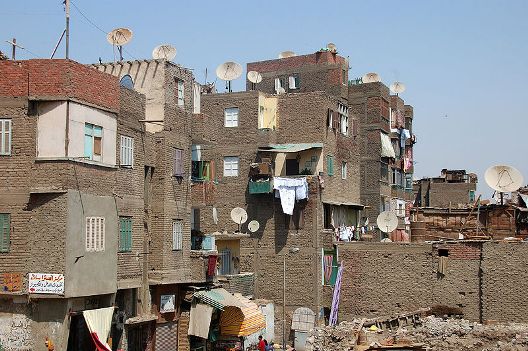 Saudi Arabia, Kuwait, and the United Arab Emirates have been generous donors to Egypt over the last year, supporting the military efforts to neutralize the Muslim Brotherhood and allowing the Egyptian economy to limp along. A recent Financial Times article estimated aid over the last year at $16 billion, in a mix of grants, loans, and oil products. But this level of aid is neither sustainable nor should it evolve into a permanent subsidy for the Egyptian economy. It does little to promote sustainable growth, with many economists and bankers contending that the aid actually serves to postpone difficult economic reform in Egypt. Without such reform, investment is unlikely to return to Egypt, either from the significant funds Egyptian business people have parked offshore or from international investors. Without major private sector investment flows, there is no engine other than massive government spending to provide jobs for the millions of unemployed and underemployed Egyptians.
Saudi Arabia, Kuwait, and the United Arab Emirates have been generous donors to Egypt over the last year, supporting the military efforts to neutralize the Muslim Brotherhood and allowing the Egyptian economy to limp along. A recent Financial Times article estimated aid over the last year at $16 billion, in a mix of grants, loans, and oil products. But this level of aid is neither sustainable nor should it evolve into a permanent subsidy for the Egyptian economy. It does little to promote sustainable growth, with many economists and bankers contending that the aid actually serves to postpone difficult economic reform in Egypt. Without such reform, investment is unlikely to return to Egypt, either from the significant funds Egyptian business people have parked offshore or from international investors. Without major private sector investment flows, there is no engine other than massive government spending to provide jobs for the millions of unemployed and underemployed Egyptians.
The Gulf states, led by Saudi Arabia, have a unique opportunity to lead the way in putting Egypt onto a sustainable economic course and they have a good geopolitical reason for focusing on this task. With growing doubts about the depth of the US commitment to Gulf security and the possibility of Iran ending its isolation, the Saudis and others in the Gulf need the strategic depth that Egypt once provided them and that Iraq no longer can. With its large population and its large, well-equipped military, Egypt possesses the ingredients to reassume that role in the Middle East. But an Egypt dependent on handouts from donors, be they Gulf or others, is a weak partner for the Gulf. Given the tenuousness of the economic and political situation in Egypt, how can that cycle of dependency be broken? The formula is relatively straightforward, but the execution will require sustained commitment.
First, the Gulf donors need to sit down with the Egyptian policymakers and the International Monetary Fund (IMF) to work through the parameters of an economic reform and renewal agenda. On the agenda: subsidy reform, judicial reform, and sharp reduction and improvement of the government bureaucracy involved in investment decisions.
Second, the Gulf donors should make a commitment to provide a safety net so that basic government functions can be met while the IMF assists Egypt in carrying out such a program. This policy would essentially take the same form as the aid they are providing now, but it would be time-limited, conditioned on achieving agreed benchmarks, and focused on support to those groups most heavily impacted by the reforms.
Third, based on creation of a more transparent and rules-based investment climate in Egypt, Gulf donors should shift their assistance from budget support to encouragement of investment in infrastructure and private sector projects. Other donors should also employ their aid flows to support this transition.
There are scores of excuses for not pursuing these steps. Continuing political uncertainty is the biggest claimed impediment. But Egypt’s partners will need to learn to live with a degree of political uncertainty for some time to come. The attempt to delegitimize the Muslim Brotherhood, the spasms of nationalism and the regime campaign against any form of secular protest will continue for a time, but there is no reason to believe that millions of Egyptians, both MB supporters and others will give up their desire to have some genuine role in the way they are ruled. In talking to thoughtful Saudis recently, there was some recognition of the need for a more inclusive approach in Egyptian politics. Political excuses cannot justify putting off tough decisions on the economy, and should certainly not impede initial discussions with the IMF. These should proceed immediately. Nor should the prospect of elections in the coming months be the justification for delaying engagement with the IMF. A Gulf safety net, combined with a clear plan to renew the economy, would permit Egypt to move forward on both economic and political fronts. It would be a strategic blunder by Saudi Arabia and its allies to waste such an opportunity.
As the GCC states seek to redefine the nature of their role in the region—including taking on more of an independent leadership role—addressing the long term health of the Egyptian economy is urgent and holds the promise of considerable strategic pay-off. A strong, growing, confident Egypt has the potential to be a critical strategic partner for the Gulf. But to get there, Gulf aid needs to be transformed into a well-designed bridge to the future.
Richard LeBaron is a Senior Fellow at the Rafik Hariri Center for the Middle East at the Atlantic Council in Washington, DC.
Image: Cairo slums. (Photo: Wikimedia)
